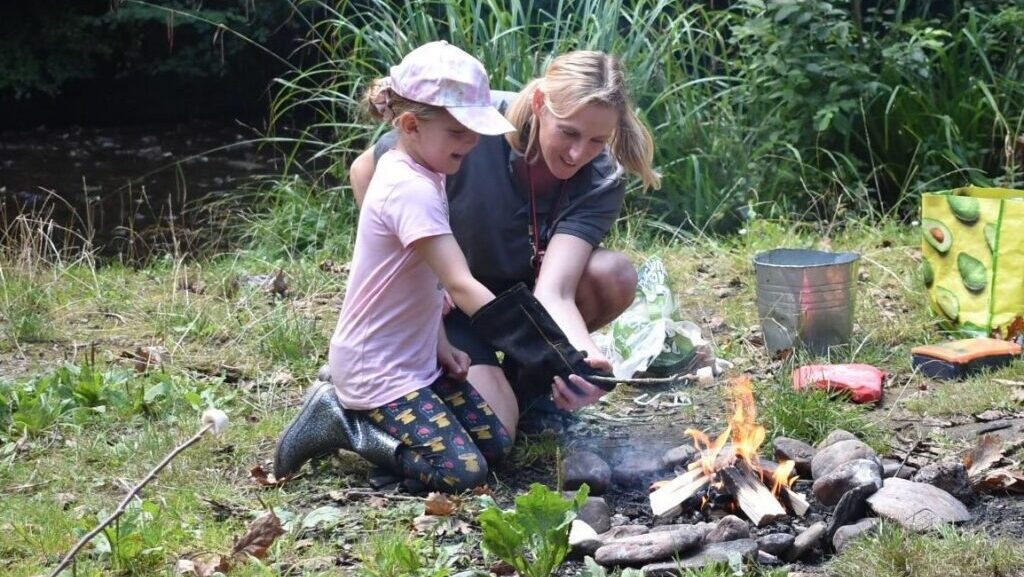Small World Children’s Nursery in Brechin on the east coast of Scotland, has been sold to an existing operator, in…
Government approves first 300 school-based nurseries
The government has approved the first 300 school-based nurseries, which will offer up to 6,000 places.
The nurseries, which will be located in towns and cities across the country, will offer an average of 20 places per site with up to 4,000 set to be available by the end of September. The majority of new nurseries opening in the first phase of the £37 million scheme are in the North or Midlands, including around one in ten in the North East.
Of the 300 nurseries, 27 will be run by a private, voluntary and independent childcare provider, 225 by the school, 46 by a multi-academy trust and two by a school governor.
Education secretary Bridget Phillipson said: “School-based early education tends to be more inclusive – with a higher proportion of children with special educational needs than other settings. And in areas where deprivation is higher, having early years provision embedded within a primary school helps children settle into learning in a familiar and trusted environment.”
She added: “According to the IFS, teachers report that this continuity supports children’s development, strengthens relationships with families, and leads to smoother transitions into Reception — helping to close development gaps before they widen.”
Bloemfontein Primary School is one of the schools involved in the scheme, and is using its allocated funding to open a new baby room on site. Head Alex Armstrong said: “We wanted to address the shortage of nursery places in our local area and to provide the community with high-quality early education for our youngest learners. This funding will enable us to transform unused school space into an engaging and vibrant environment, offering year-round childcare for children from birth to five.”
However, sector leaders said the scheme would not provide enough new places to meet demand. Neil Leitch, chief executive of the Early Years Alliance, said: “With more than three-quarters of entitlement places currently delivered by private and voluntary nurseries, pre-schools and childminders, it’s clear that this vital part of the early years sector should be central to any plans to drive up capacity – especially given we’re just months away from the final phase of the entitlement expansion and many schools simply do not have the resources, or staff with the necessary skills and experience, to deliver high-quality education and care to under-threes.”
He added: “Why, then, is the government continuing to drag its feet on ensuring that PVI providers are both adequately funded and supported to tackle the longstanding staffing crisis? Ultimately, if the government is truly serious about breaking down barriers to opportunity, it must come to the realisation that increasing school-based provision can only ever be one piece of a much larger puzzle. Failing to recognise this will simply mean more families will lose out.”
Purnima Tanuku, executive chair of National Day Nurseries Association (NDNA), said the organisation would be closely monitoring whether schools were meeting “the criteria the government set out for this provision, which is to work closely with private and voluntary providers, and clearly evidence the local demand for places.”
She said: “At a time when the sector is struggling, and the local authority variations on new statutory guidance is causing enormous stress to providers, it is insensitive and extremely demoralising when the largest funder of early education and childcare – the government – says that ‘school based early education tends to be more inclusive with a higher proportion of children with special needs than other settings’.
Tanuku pointed out that nurseries are often unable to access the SEND funding they need to fully support children in their settings. “If the Government is to address inclusivity it needs to address the SEND postcode lottery that exists for children, families and early years settings.”
She also said the government was wrong to suggest nurseries are better for children transitioning into Reception. “Nurseries across the country have already started to work with schools and families of children making the important transition into school.
“PVI providers already deliver childcare in partnership with schools offering flexibility to parents and it is about time the Government should be more inclusive when it comes to supporting the PVI sector in parity with the maintained sector.”
Latest News
Rosedene Nurseries is set to open a forest school nursery and staff training hub in North Yorkshire.
The Early Years Alliance has called for schools evicting private, voluntary and independent (PVI) settings from their premises to be…




